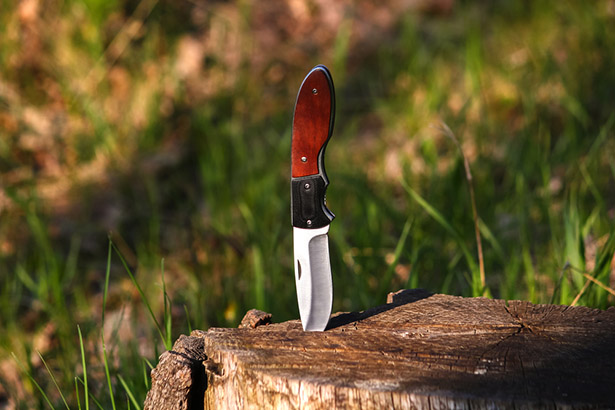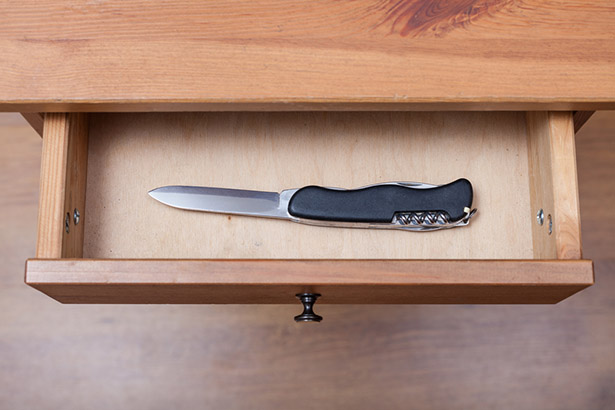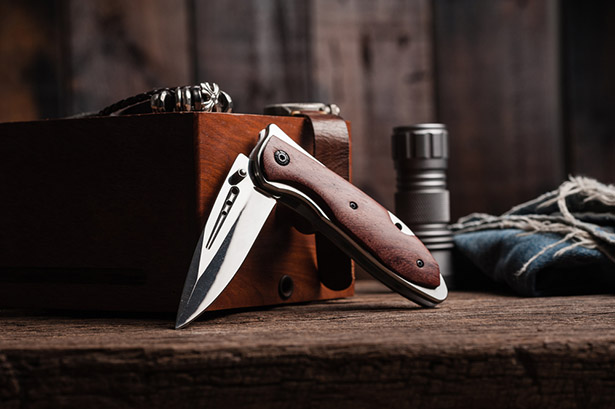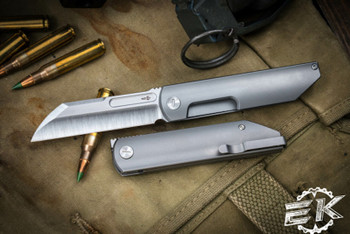Maintenance Tips for Folding Knives: How to Use, Store, and Clean Your Pocket Knife
Jan 10th 2019

Having a pocket knife is one of life’s small joys. Being able to whip out your knife to solve a problem is satisfying. Like other tools, you need to know how to use, how to store, and how to clean a pocket knife. Educating yourself on how to be a responsible knife owner can ensure your safety and the safety of those around you.
Most pocket knife aficionados know that a dull knife is a dangerous knife; what many fail to consider is that a dirty knife is also a dangerous knife, although for different reasons. You should know how to clean your pocket knife to maintain its function and safety, as well as how to store and use it correctly.
Taking care of your knife keeps you and everyone around you safe and increases its longevity. Here are some basic tips and guidelines about the use, storage, and cleaning of your pocket knife.
Use Safely and Correctly
As every Scout or Brownie knows, a pocket knife is not a toy; it is a tool. Pocket knives are simple, yet functional, tools that can be extremely helpful to have handy.
In order to carry this tool safely, it’s important to first know how to properly carry a folding knife. Do not throw a pocket knife, use a dull or dirty pocket knife, or cut toward your body instead of away. Also, avoid using your knife when anyone is within close range of you, and never hand anyone a knife blade-first. Keep your pocket knife clean and sharpened and abide by these basic safety guidelines.
Anyone who is in the market for a knife should understand that having a pocket knife is a privilege and responsibility. Treat a pocket knife with the same gravity given to other potentially dangerous objects like matches or shears.
Proper Storage

To maintain the longevity of your knife, store it in a suitable place. Do not store pocket knives in the sun, as that can invite rust if there is moisture in the atmosphere. Do not toss your pocket knife into a drawer with a bunch of other knives or hard objects. Rolling around a drawer, banging into stuff, and having heavy items placed onto the knife can damage it.
If you’re serious about your knife hobby, store your knife or knives in a knife bag made specifically to store pocket knives and decrease any wear and tear. Protective cases, like those made for guns, are also made for pocket knives. There are knife rolls and even display cases, but the best advice is to keep your pocket knife out of the sun, moisture, and humidity and in a safe storage space away from other items.
Cleaning Your Pocket Knife
Most of us carry our pocket knives in our pockets, but this can cause problems down the line. Pocket-lint can gum up the works of your pocket knife, especially in the pivot and the locking mechanism. Lint in the pivot can make the knife slow or tough to open and close, and it may get stuck in an open or closed position if lint gets jammed in the locking mechanism, which can cause a serious injury.
The first thing to do is to clean your pocket knife thoroughly. You can either do this by picking out the grit and lint, washing it, or taking it apart in cases of severe build-up.
If you have minimal grit in your pocket knife’s pivot, you can usually dig it out with a small screwdriver, a toothpick, or another tool that’s long and thin.
If your knife requires more maintenance, you’ll need a soft-bristled brush (like an old toothbrush) and some warm, soapy water. Brush down the whole knife, even the handle and blade, and don’t forget to rinse thoroughly. You may even see some of the knife’s original luster return after a thorough cleaning.
To ensure your pocket knife continues to function like new, use light cleaning oil to help the pivot and other mechanisms move smoothly. Most knives come with an instruction manual for tips on the type of cleaning oil that will work best for your blade.
Final Word

Pocket knives are simple, sturdy, and dependable tools. To ensure the safety of those close to you and to prolong the knife’s integrity, know how to clean a pocket knife, use it appropriately, and store it.
With these tips in mind, you can enjoy your pocket knife for many years. If you are interested in more tips on pocket knife ownership or even in adding another knife to your collection, explore our website to view all our offerings.

